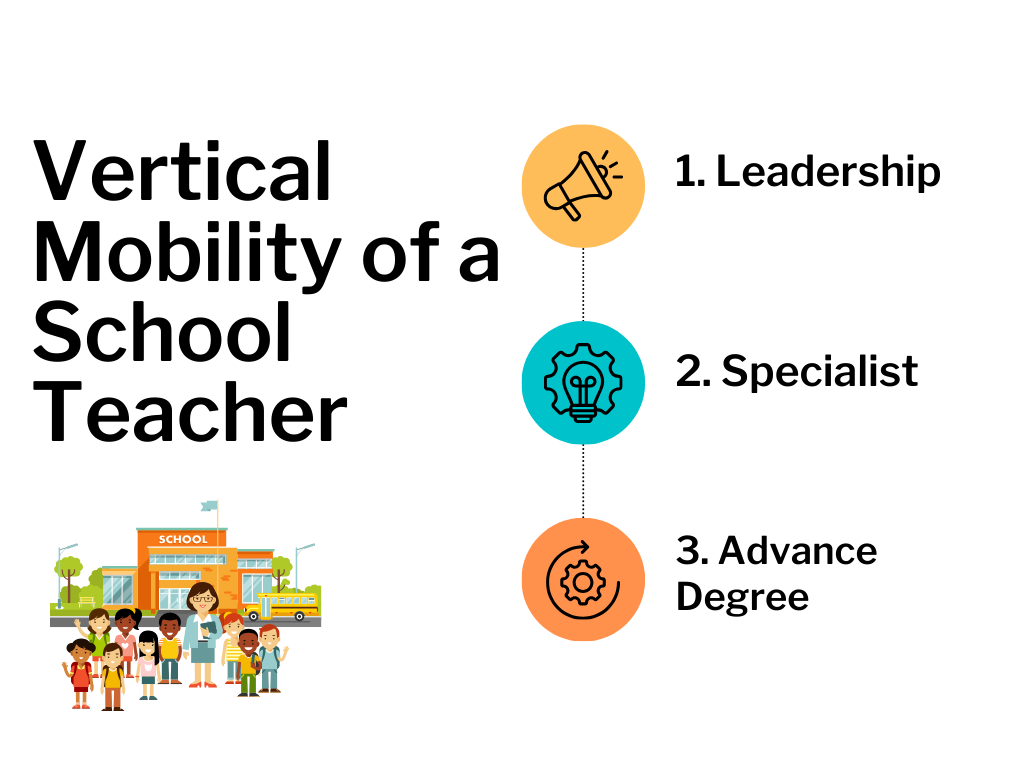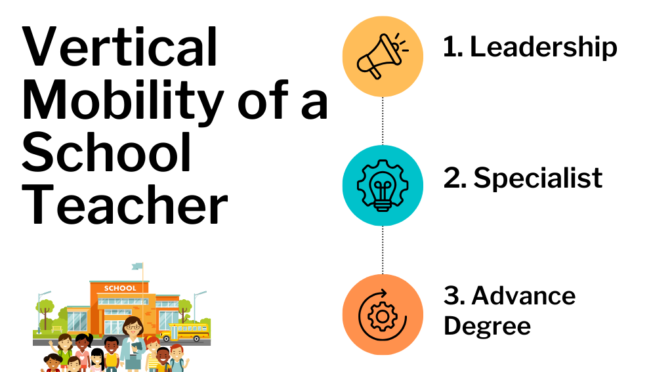Vertical mobility in the context of a school teacher refers to the opportunities and pathways available for a teacher to advance in their career vertically, typically by moving into positions of greater responsibility and authority within the educational system.
Vertical mobility is important for teachers who aspire to take on leadership roles, earn higher salaries, and make a broader impact on education.
Here are some common ways in which vertical mobility can be achieved for school teachers:
- Promotion within the Classroom: Experienced teachers can take on roles as senior teachers or master teachers, where they may mentor junior colleagues and take the lead in curriculum development or educational innovation.
- Departmental Leadership: Teachers may progress to become heads of departments, subject coordinators, or curriculum specialists. In these roles, they have greater influence over the content and organization of the curriculum in their subject areas.
- Vice Principal or Principal: With additional qualifications and experience, teachers can aim for positions such as vice principal or principal. These roles involve overall school management, including administrative, disciplinary, and academic responsibilities.
- Educational Leadership Roles: Some teachers aspire to take on roles at the district, state, or national levels. They may work as educational officers, curriculum developers, or education policymakers, influencing the broader education system.
- Teacher Educators: Teachers can transition into teacher education roles by becoming teacher educators in colleges or universities. They may teach and mentor future teachers, conduct research, and contribute to the development of teaching methods and curricula.
- Educational Specialists: Some teachers become specialists in areas such as special education, counseling, or educational technology. These roles often come with additional responsibilities and expertise.
- Advanced Degrees: Pursuing higher education, such as a master’s or doctoral degree in education, can open up opportunities for higher-level positions in education and research.
- Professional Development: Participating in ongoing professional development, workshops, and training programs can help teachers acquire new skills and knowledge, which may be recognized by their school or educational authorities.
- Teacher Leadership Roles: Some schools have established teacher leadership positions, such as lead teachers or instructional coaches. These positions allow experienced teachers to support their colleagues in improving their teaching practices.
- Entrepreneurship: Teachers with innovative ideas may start their own educational ventures, such as tutoring centers, coaching institutes, or educational technology startups.
Also Read: Use of ICT

Also Visit: Prep with Harshita


23 thoughts on “Vertical Mobility of a School Teacher”